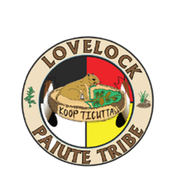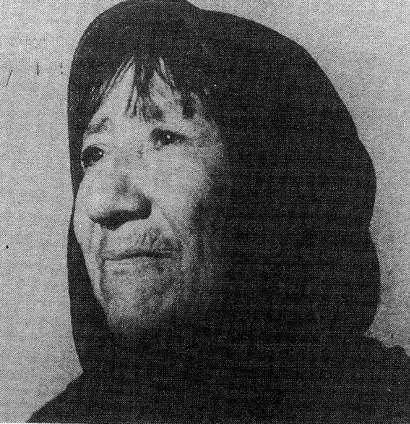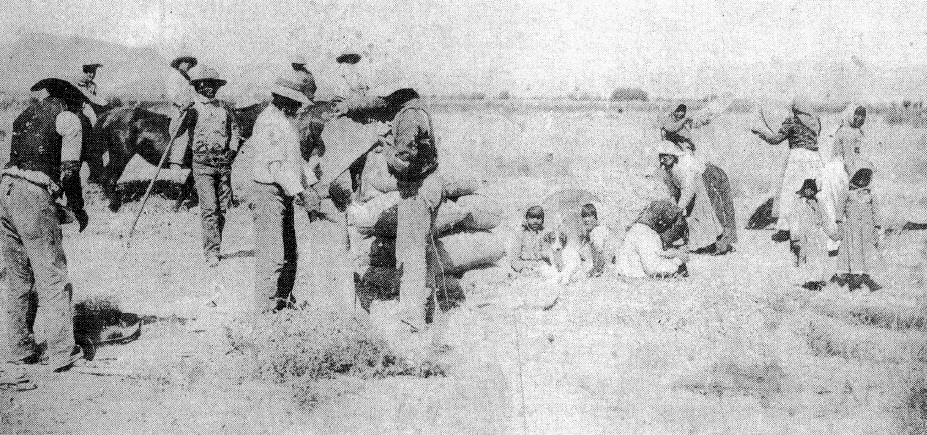election updates
| 2023_election_vote_recount_june_29_2023.pdf | |
| File Size: | 863 kb |
| File Type: | |
| JUNE 2023 unofficial_election_results_.pdf | |
| File Size: | 803 kb |
| File Type: | |
| Election_Committee_Notices_2023.pdf | |
| File Size: | 262 kb |
| File Type: | |
| election_committee_candidacy__eligible_voters_list.pdf | |
| File Size: | 470 kb |
| File Type: | |
| election.pdf | |
| File Size: | 382 kb |
| File Type: | |
UPCOMING EVENTS
class of 2023 graduates
| Class of 2023 Graduates.pdf | |
| File Size: | 65663 kb |
| File Type: | |
Our History |
|
Mary Dave was born around the year 1881. She was the daughter of Captain John Dave and sis Dave. Her parents remember the coming of the first white man. Mary had two sisters, Laura Bliss and Lottie Oppenheim and two brothers, Skinny Dave, known as "Chief Bowi-an", and Ben Dave and Mary had many children. She has two daughters still living on the Lovelock Indian Colony with their families: Berdie Dave and Annie Tom Bill. She still remembers when the town had rivers flowing through it and sage brush and grease wood grew everywhere. The depot and the George Lovelock, sr., home were the only buildings as she first remembered. They visited George Lovelock, sr. often and he would give them jam on bread. He was a great friend of the Indians. She tells of many water snakes being in the rivers and everywhere around. The Paiutes would wear the snakes around there necks, arms, and waist as belts. She also tells about the mosquitoes that infested the areas. Many times they had to get away from them, so they would go to the top of Lone Mountain and spend the nights. There the wind always blew a cool breeze. Lone Mountain's Indian name is "Wah-pun g'haben," which means mosquito bed. Mary told of many trips she took on horseback and wagon to hunt with the family for deer and antelope, and wild game
|
that wasn't found in the Lovelock area. She told of rock formations about 60 miles northeast of Lovelock. Food was plentiful in Lovelock; they discovered this on hunting trips. Berries grew everywhere. Along the rivers there were buck berries and many other wild berries. Choke cherries we're plentiful in the canyons. There were jack rabbits, ducks, geese, fish, ground squirrels and groundhogs. There were also plenty of wild vegetables to pick like wild onions, sweet potatoes, tule shoots and cane. The Indians got their sugar in Lower Valley. Some of this sugar cane still grows along the ditches. In the fall they went to gather pine nuts in the East Range. The Indians always returned to Lovelock to spend their winters. They made pine nut soup and when it was cold they put the pine nut soup in bowls and froze it to eat like ice cream. They lived in teepees made of sage brush and tule. They used grease wood for fuel for it held the heat for the longest time. The Paiutes made baskets and many other things out of willow. No part of any animal was ever wasted. Deer skins were used for dresses and rabbit skins were used to make rabbit blankets. Mary told many stories and different things that happened on her many trips, but it is impossible to put it all down. Mary passed away at her home on the Lovelock Indian Colony on March 9, 1958. These words were told to her granddaughter Helen T. Williams.
The people who lived around the area of present day Lovelock, Nevada called themselves Koop Ticutta, Ground Squirrel Eater (Aleck Jack ) like the many other different bands of Northern Paiutes, they took the name of the food, which was most abundant their area, and called themselves after the food. The Koop Ticutta would pour water down a hole in the ground to force a squirrel out. When the squirrel stuck his head out of the hole, the Koop Ticutta would grab it behind the head. They would then twist it at the neck with a hard twist of their wrist. This would snap the neck and give the squirrel a painless death (Aleck Jack ). The squirrel was prepared for eating, first by being cleaned out. The fur would be skinned off the squirrel. Then the rest placed under heated coals with a small fire on top to keep the coals heated. When the squirrel was cooked, outer skin was peeled off and the meat was eaten. Before white intruders started to push into Paiute land, the Ticutta fought with some Indians they did not know. The Koop Ticutta didn't know where they came from, but they were very tall and had red hair all over their bodies (Auburn Rhodes). Not only did the Koop Ticutta band fight with these strange Indians, but other Paiute bands also fought them. These strange Indians were said to have eaten human flesh (Sarah Winnemucca). Since they ate human flesh, the Paiute people called them Numa Ticutta, People Eaters (Ione Allen). The Paiute people forced the Numa Ticutta, into a cave. The Paiutes asked them to give up the fight, but they wouldn't. The Paiutes placed sagebrush in front of the cave's entrance. The Numa Ticutta dragged the sagebrush back into the cave. This procedure went on until the cave was completely filled with sagebrush. The Numa Ticutta still would not give up, so the Paiutes set the sagebrush on fire and killed everyone inside (Aleck Jack and Auburn Rhodes). The Koop Ticutta were probably the first Paiutes to encounter the first invading white people. It was in the Koop Ticutta territory that members of Walker's party (1834) shot an Indian for the fun of seeing him fall, an event that was followed by a one-sided battle in which more than twenty others were slaughtered (Omar C. Stewart). The Koop Ticutta helped in a few of the fights the Cuyui Ticutta (Pyramid Lake) had with the Pitt River Indians over the control of Pyramid Lake. Also, the Koop Ticutta, along with many other Paiute bands, helped in the defeat of Major Ormsby and his volunteer army in the Pyramid Lake War of 1860 (Harry Winnemucca). With the arrival of White men in Koop Ticutta territory, the Paiutes were forced to leave many ancestral areas. Soon many white invaders began to squat in the Humboldt area. They began to farm the land and turned the whole area into a farming area. Jackrabbits were plentiful throughout the area and were considered a main food for the Koop Ticutta. But to the new white squatting farmer, the rabbits were a menace and had to be destroyed (Auburn Rhodes).


